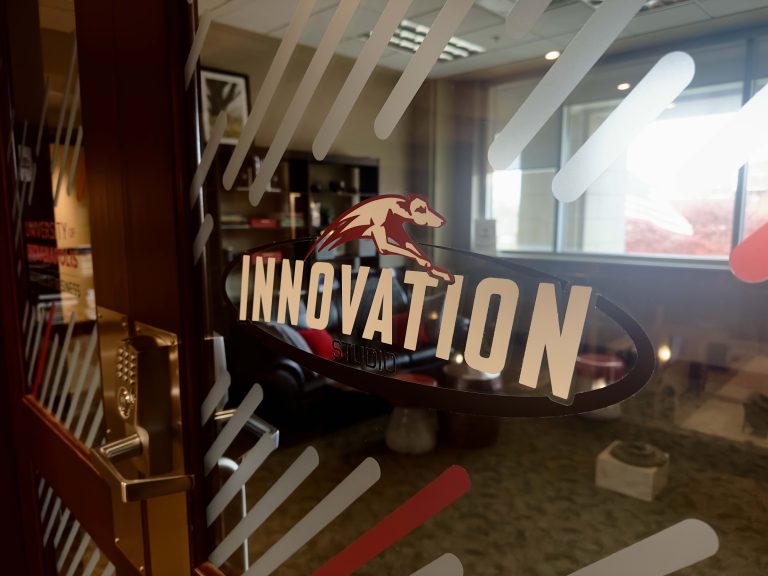Gaige Wintz’s career plans have shifted, but his goal of becoming a spiritual healer has never changed. Senior philosophy major Gaige Wintz is a chaplain intern at IU Health University and Riley Children’s Hospital, the first undergraduate chaplain intern in University of Indianapolis history. While the job often leaves him exhausted, he says it has helped him find his purpose in life.
“Some Saturdays, I’m working a 12-hour shift,” Wintz said. “It’s tough and it’s exhausting, but this is how the chaplains do it. That’s pretty common for a lot of people working for at a hospital.”
When working a 12-hour shift, Wintz is on duty from 8 p.m. Saturday until 8 a.m. Sunday.

“Obviously, it eats up a lot of my weekend,” he said. “When I get off, I just go back to my apartment and want to sleep. I wind up sleeping for at least a few hours and it kind of messes with my sleep schedule. After sleeping until Sunday afternoon, it’s hard to fall back asleep and get any rest Sunday night.”
Despite the sleep issues, he said that he is adjusting to his new rhythm.
Jeremiah Gibbs, University of Indianapolis chaplain and director of the Lantz Center for Christian Vocations, first told Wintz about the position.
“He was collaborating with one of the leaders of ACPE [the Association for Clinical Pastoral Education],” Wintz said. “It’s a program that most graduate seminaries recommend or require [students] to take. Jeremiah knew that I had an interest in chaplaincy, so ACPE allowed me, as an undergraduate student, to be in the program to see how it went. They’re actually thinking about allowing undergrads to be a part of that program.”
While on duty, Wintz has experienced a wide variety of situations, which he calls life-changing.
“Whether that’s just talking to or listening to patients about their frustrations or their fears, their anxieties or their hopes. Whether they just want someone to listen or for prayer—sometimes they want communion,” he said. “And then you’re also with the grieving families. Sometimes you’ll be called down into the emergency department and be with the patient or the family of the patient. As chaplains, we also minister to the staff.”
Ministering to the staff is a different feeling than ministering to patients, Wintz said.
“The staff are ministers too—to their patients,” he said. “They care about their emotional and spiritual well-being as well.”
Wintz said the toughest part of his job comes when he is sent to Riley. He says that in his mind, the children are so young and innocent that it forces him to confront big questions.
“It’s usually when the questions ‘why?’ pop up,” he said. “[Parents ask,] ‘Why has this happened to my child?’ Sometimes they don’t want an answer. Sometimes there is no answer.”
However, despite the younger children’s situations, many of them still smile and laugh. Wintz says they can still live in the moment and be happy. When they are healed and go home, that is a time of celebration for the families and staff who have cared for them.
Despite the situations Wintz has encountered in his ministering, he believes that his faith is now something he can cling to.
“I can say my faith, in general, is made stronger in the difficult situations that make you ask questions,” Wintz said. “It makes you rely on your faith for the answers. Definitely helping others and being with others and seeing others do the same thing builds up your faith alone.”
Wintz considered Navy chaplaincy, which also serves the Marine Corps. Now with his current opportunity, he says his interest in military chaplaincy has grown.
“I think I would enjoy the military chaplaincy because of the diversity, the physical challenges and I would be experiencing many of the same things as the people I minister to,” he said. “Overall, I just like the diversity of serving people with many backgrounds and many faiths. Chaplains minister to all.”








